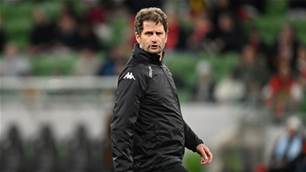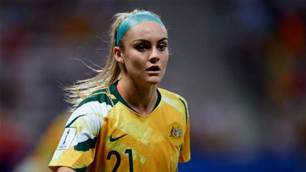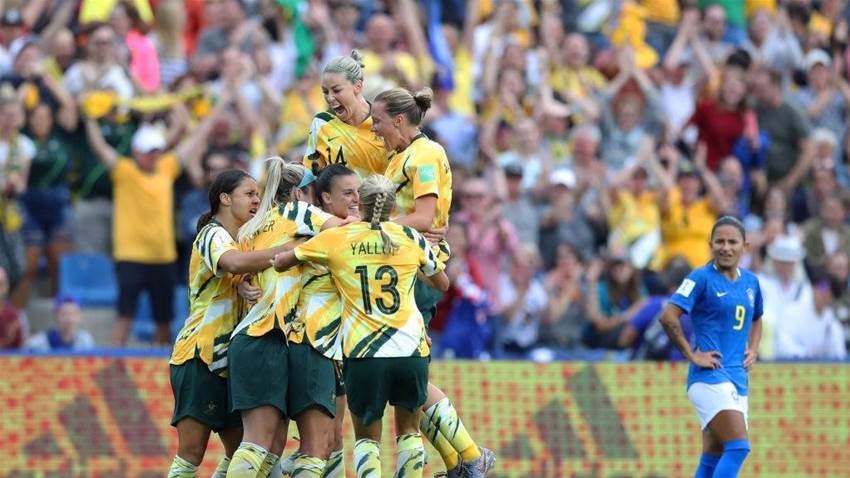Analysing the voting allocation, it turns out it wasn't as close as Australian pundits feared. However, Europe did ultimately far prefer the Colombian bid to Australia and New Zealand.
Overall, it was a bit of a whitewash.
Australia and New Zealand's 'AsOne' 2023 World Cup bid secured nearly double the amount of votes as Colombia's in the final reckoning, winning over 22 to 13 council votes.
For most of the bidding process, it seemed this would be the natural conclusion.
Australia and New Zealand have led the world in establishing equality for female footballers, with the Matildas making world history by securing equal pay with the Socceroos in the last FFA CBA negotiations, while New Zealand football president, Johanna Wood, is a trailblazer among FIFA council members worldwide.
After the AsOne bid quickly secured over 800,000 supporters online, FIFA's own bid evaluation report was equally glowing, rating the bid 4.1 out of 5 ranking points, above other heavyweights Japan and Brazil.
First Brazil, then Japan dropped out, the latter due to the 'high probability' that Australia and New Zealand would win.
Meanwhile, Colombia was in last place, only scoring 2.8 out of 5.
It was also deemed a 'high risk' proposition for FIFA commercially and the football federation's troubling history with their own athletes - who have called their treatment 'second class citizens' further added to the feeling of security in the antipodean bid.
As expectation grew, Australia and New Zealand's bids kept getting stronger and with a last-minute surge in attention thanks to high-publicity media runarounds by Scott Morrison and Jacinda Ardern (the latter included private phone calls to council members), one could have been forgiven for thinking it was all wrapped up.
But last minute reports that Colombia had dominated the UEFA preliminary voting counts, in addition to the expected votes from their own confederation, threw the bid into a last-minute panic.
UEFA, who not only hold a high proportion of voting seats on the FIFA council but also stock the game's most influential powerbrokers, threw their support behind the Colombian bid.
In a remarkable turn-of-faith since awarding France the 2019 Women's World Cup, reports claimed that the European members saw the tournament as 'developmental' - a very controversial opinion, given over a billion people tuned into the last iteration.
In the end, eight of the 13 voters for the Colombian bid were from Europe. Included in them, council members from England, Italy, Hungary, Portugal, Greece, Russia and France.
However, it was little more than a statement. Australia and New Zealand dominated the African, Asian, Oceanian and North American delegations to comfortably secure a history-making tournament.
A more nuanced set of reasoning for Colombia's late appeal seemed to lie in the potential growth for hosting the World Cup in South America. Colombia's vice-president, Marta Lucia Ramirez de Rincon, perhaps summed up the bid's strength in weakness best.
"For this government, sports are not only means to close general inequality gaps, but also, a tool of empowerment for women.
"In Colombia, deep traditions made us believe, for many years, that football, as many other activities, was exclusively for men. Today, the world has changed and we are now conscious there is no difference between men and women."
With a population of roughly half Colombia's yet a GDP of nearly double, Australia were clearly better-equipped to stage the tournament.
But after hosting the 2000 Olympics, the 2015 Asian Cup and the 2018 Commonwealth Games, one must feel for Colombia, who made the point that they have never hosted a major sporting event in the nation's history.
The uproar and eventual voting decision was clear: the Women's World Cup is not a development tournament. But that may not be a victory for women's football.
But does such a thing exist outside of major tournaments? With U/17 and U/20 World Cups often costing more to stage than they make in revenue, possibly not.
For the Colombian female footballers who, far less than equal pay, are fighting for a living wage...let's hope there is such a thing, somewhere.
Related Articles

'Timing not right': Montemurro's verdict on Matildas vacancy

Matildas: 'Fourth at the Olympics is honestly the worst place you could come'
.jpg&h=172&w=306&c=1&s=1)












